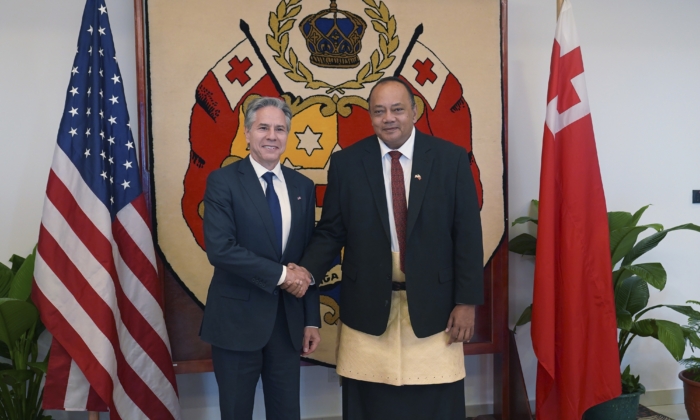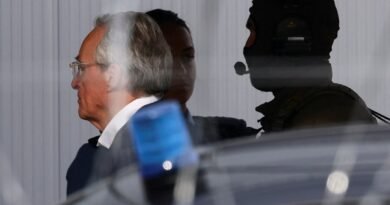Tongan Prime Minister Extends Warm Welcome to Beijing ‘Security’ Personnel at Pacific Islands Forum
Discussing security arrangements at the regional forum in Tonga are six members of the police ministry from Beijing. Tonga has accepted Beijing’s offer to assist with security at the Pacific Islands Forum (PIF) leaders’ meeting in August. This move has alarmed Australian authorities who see it as part of a plan to embed Chinese Communist Party (CCP) officers and training teams in police forces across the South Pacific.
Commissioner Shane McLennan of Tonga’s Police confirmed that six officers from Beijing’s Ministry of Public Security (MPS) came from Shandong Province to follow up on a meeting between CCP personnel and South Pacific police ministers and chiefs in December 2023.
While the MPS delegation has a broader agenda for police cooperation, the primary focus is on how Beijing police can assist Tonga in hosting the Forum. This assistance may include resources like vehicles, motorcycles, training in motorcade operations, and other security operations for PIF, according to Mr. McLennan in an interview with the Australian Broadcasting Corporation (ABC).
NZ, Australia Already Providing Security Assistance
Commissioner McLennan mentioned that New Zealand and Australia have been offering structured assistance and training to Tonga. He stated that he would only allow Beijing to embed police among Tonga’s officers if they provide assistance that is not already available from other sources. Discussions are ongoing regarding additional ways in which the MPS may be able to assist.
Australia is already involved in various programs with the police in Tonga, including collaborating with Samoan police to enhance local officers’ close personal protection skills.
Tongan Prime Minister Siaosi Sovaleni expressed that there is no need for concern regarding Beijing’s offer. Despite the United States urging regional governments to avoid security pacts with Beijing, Tonga sees no issue with accepting assistance for hosting the foreign leaders’ meeting.
Beijing has placed a China Police Liaison Team (CPLT) in the Solomon Islands and has deployed uniformed Chinese officers to work with counterparts in Kiribati. These efforts by the CCP to establish itself as a partner to smaller Pacific islands raise concerns for Australia and the United States.
Australia’s Minister for the Pacific, Pat Conroy, emphasized that Beijing should not have a role in policing Pacific island states, advocating for security assistance to come from other members of the Pacific family like Australia and New Zealand. Fiji’s Prime Minister recently ordered Chinese officers in the country’s police force to leave, although a broader policing agreement with Beijing remains intact.
On a contrasting note, Nauru President David Adeang visited China and spoke positively about CCP leader Xi Jinping. He indicated that some of Nauru’s traditional partners had challenged his country to choose its friends and alliances wisely, hinting at Australia.



